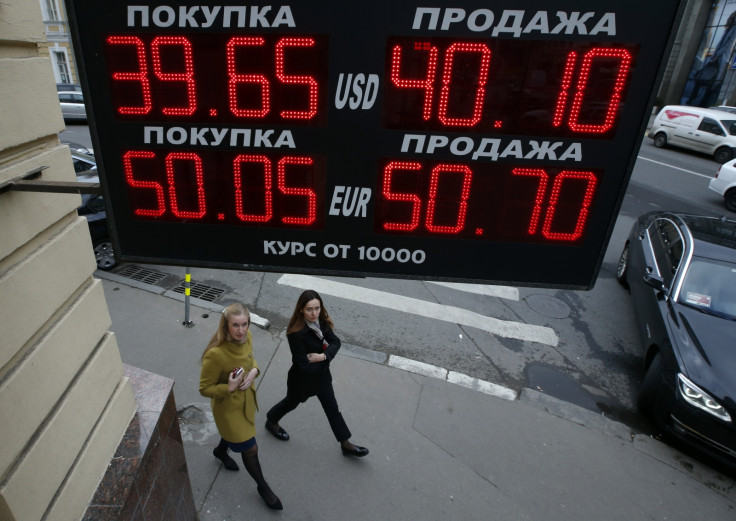Russian Rouble Rebounds on Speculation of Urgent Central Bank Intervention

Another day, another rollercoaster ride for the Russian rouble, which having hit new lows against the dollar and euro as markets opened, has rebounded on the expectation of decisive action from the Bank of Russia.
The Russian currency regained 2% of its value against the dollar and euro, amid speculation that the central bank will make a one-off and urgent intervention in the currency market.
Analysts also expect that another interest rate hike will soon push rates to as high as 12% from their current level of 9.5%. Officials are said to be meeting today to decide on what exact course of action to take, but the prospect of some action has appeared to arrest the dramatic decline, which saw the rouble lose 20% of its value in October and 13% of its value this week alone.
Since the start of the year, its value has dropped 48% against the dollar. This morning's sell-off was put down to investors' panic, following the central bank's decision on Wednesday to move towards a free-floating currency.
The bank has capped its daily foreign currency purchases at $350m, abandoning its interventionist policy, which it feared was leading to dollar-hoarding and currency speculation. The move towards a floating currency will allow market forces to set the exchange rate. The one-off intervention is predicted to be significant.
The currency's decline has been attributed to two main factors: the sanctions that have stopped Western goods entering the Russian consumer markets and which have barred Russian banks and companies from raising finance on the EU markets; and the falling oil price, which has left Russia's energy industry – by some distance its largest exporter – in dire financial straits.
It's unclear what the scale of the bank's one-off intervention will be, but urgency has been urged. ING Bank's chief economist in Russia Dmitry Polevoy said: "The longer the regulator waits the harder it will be to find a solution able to stabilise the market. Panic amongst the population is difficult to stop."
Analysts have also been speculating as to the impact an interest hike will have.
Nicholas Ferres, investment director at East Spring Investments, said: "My guess is that the bank will likely need to hike rates to at least 15 per cent and undertake large scale forceful intervention, in order to reintroduce two-way risk in the currency. This was the level required in the 2008 crisis to stabilise the currency."
Meanwhile, Neil Shearing of Capital Economics has been drawing comparisons with similar interest rate interventions. "There are there examples of emerging market central banks having raised interest rates to defend currencies in recent years: Hungary (2008), India (2012) and Turkey (January this year). The average size of the increase was 340bps and, on average, interest rates were raised to 11.25%," he wrote in a note.
© Copyright IBTimes 2024. All rights reserved.






